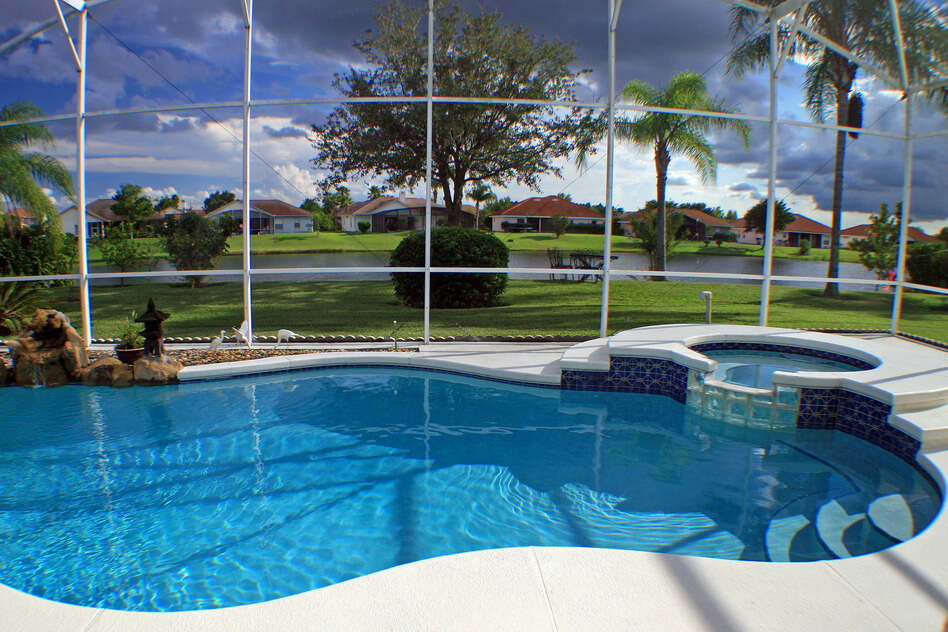
Summer is almost here! For many, this is a time of days spent in the backyard, relaxing and lounging poolside. But before you break out the sunblock, towels and floats, take some time to make sure you’ve done all you can to prevent accidents and injuries by practicing proper pool safety.
Pool Safety Is Essential
A child can drown in less time than it takes to answer the phone, according to the US Consumer Product Safety Commission (USCPSC). In fact, between 2014 and 2016, there were an average of 5,900 pool- or spa-related submersion injuries treated in emergency departments nationwide and an average of 356 fatalities of children under the age of fifteen per year.
Keep Uninvited Guests Out
Your first line of defense is to keep people out of the pool when they shouldn’t be there and unfortunately, a “No Trespassing” sign isn’t going to cut it. Insurance carriers, as well as many town and local ordinances, will require you to have a fence around your property, the pool itself, or possibly both. Fences should be at least four feet high (check for specifics with your insurance carrier and locale), self-closing, self-latching, and open out and away from the pool area. Also, the fence should not be made of chain link, which could be easily climbed, and should not have slats wider than four inches apart, which could allow a child to slip through. Doors and gates can be fitted with alarms that will sound when opened to signify someone has entered the pool area.
Also consider using a pool alarm. Some alarms work on the exterior of the pool and sound when a person or pet trips an infrared sensor above the pool. Others sit on the water and send an alarm when there is a surface wave. Still others are immersed in the pool water and detect a change in water pressure when someone enters the pool.
Research the various types and read reviews to find the one that is right for you. No matter which you choose, it’s a good idea to let neighbors know you have an alarm so they can keep an ear out for it.
Keep Invited Guests Safe
Here are some additional simple pool safety tips to help keep you and your loved ones safe:
- Supervise – Never leave small children unsupervised, not even for a few seconds. Even with supervision, children should be taught pool safety practices.
- Remove temptation – Always remove floats and toys from the pool when not in use so as not to tempt little ones who may try to reach for them.
- Teach – Have your children take swimming lessons and be sure inexperienced swimmers are accompanied by a strong swimmer.
- Use the buddy system – Never swim alone and makes sure other swimmers adhere to this guideline.
- Weather – Keep an eye on the weather. Do not swim during rain or lightning storms, and use caution in excessive heat.
- Shield electronics from water – Radios, CD players and other electronic devices should be kept away from the pool and surrounding wet areas.
- Minimize entrapment risk – Keep children away from filters, drains and other mechanical devices that could cause injury, entrapment or prevent someone from surfacing. Everyone should know where the emergency shut-offs are for these devices in case of an emergency. Drain covers should meet the standards of the Virginia Graeme Baker Pool and Spa Safety Act (P&SS Act).
- Be prepared – Always have a first aid kit, a fully charged phone, ring buoys and reaching poles on hand. Keep scissors nearby to cut hair, clothing or a pool cover if necessary due to entrapment or entanglement.
- Get trained – If possible, get training in CPR and basic first aid.
- Look before you leap – Never dive into an above-ground pool and check the water depth of an in-ground pool before jumping in.
- Drink responsibly – Never swim while consuming alcohol. According to the CDC, nearly half of adolescent and adult deaths associated with water recreation involve alcohol.
- Cover up – Pool safety doesn’t end when no one is swimming. When not in use, employ a sturdy pool cover over an in-ground pool and remove the steps or ladder for an above-ground pool.
- Sanitize – Regularly sanitize your pool and test the water’s pH level. Remove debris daily and “shock” with liquid pool shock at least weekly. Maintaining a clean pool can help minimize sickness and infection caused by bacteria and germs in the water.
Are You Adequately Covered?
Having a pool at your residence is a wonderful way to entertain family and friends all summer long. Taking sensible precautions can help keep everyone safe and avoid costly insurance claims against your homeowner’s policy.
Knowing what your homeowner’s policy covers and what it doesn’t is critical. Limitations and exclusions can create coverage gaps, exposing you to a potential loss of assets in the event of an unfortunate accident. Your insurance advisor at New Agency Partners can help you be sure you are protected. Whether you’ve had your pool for years or you’re just thinking of adding one this summer, take the time to review your coverage with a knowledgeable professional to avoid surprises later.
This post has been updated from its original run on June 15, 2015.
All insurance policies are different. Be sure to review your insurance policy for specific information about coverages available to you. Nothing in this post is meant to suggest a guarantee of coverage.
